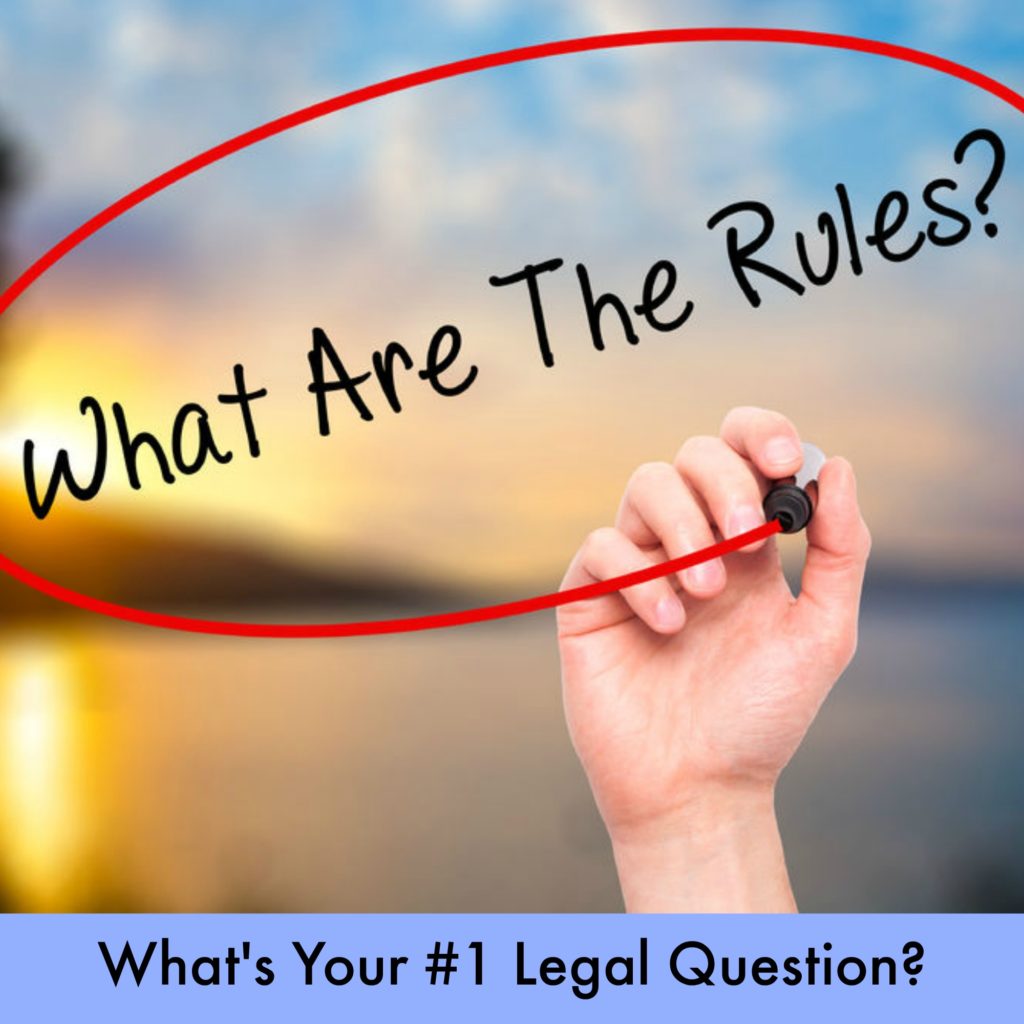Today I want to talk to you about single member LLCs. I want to talk to you about what they are. I want to talk to you about how to avoid the risks of piercing the corporate veil that you could get sued and your personal assets could get reached by creditors who might be suing your company if you are a single member LLC.
What is a Limited Liability Company?
Let's start with what an LLC is. An LLC is a limited liability company, and a single member LLC is basically an LLC that only has one member. That would typically be you, I would suppose. Alternatively, you could have what's called a multi-member LLC which is where you and your buddies get together and decide that you want to form an LLC. That's cool and you can do that too, and that would be a multi-member LLC.
Why Should You Form an LLC?
The biggest reason that many people will form an LLC, especially if they're doing an online business, is because they want to avoid personal liability. So if you have a blog out there and you want to create an LLC for your blog, the reason you would do that is because if you're giving advice on your blog or you're telling people to do certain things or you're selling products or whatever. If somebody gets hurt or injured or damaged based on your advice or based on the products that you've sold to them, then potentially they could sue you. And what you want to do is you want to keep up this what's called a corporate veil so that they can't read your personal assets. And the way you do that is by forming an LLC, or you can also form a corporation, but for purposes of today, we're going to really be focusing on the LLC component.
So basically the way this works is when you form an LLC, there's a legal doctrine. It's called the corporate veil. That's what you get. So basically you have this dome, and think your home or your personal assets are all underneath this dome in what's called this corporate veil. So they're covered by this corporate veil. And if a creditor or somebody who is injured by your business or something that you did while you were in the business, if they wanted to get at the assets that are in this corporate veil, then they can do what's called “piercing the corporate veil”. And there's a number of ways they can do that.
What is Piercing the Corporate Veil?
So one of the most frequent ways that somebody can pierce the corporate veil, if you have a business, is they can use what's called the alter ego doctrine. And the way that works is basically what they're telling the court, if they were to sue you, is that there really is no difference between you and the LLC. And if that's the case, then they can sue you and they can reach all your personal assets to satisfy any judgment that they might get against you or your business. With a single member LLC, there's a lot more risk that something like that can happen than if you have a multi-member LLC. For example, with you and your partners, the courts don't really want to pierce the corporate veil if you have partners because they don't want to make everyone liable for something that you fucked up.
How to Avoid the Risks of Piercing the Corporate Veil #1 – Get an Operating Agreement
So there's a lot of things that you can do protect and avoid the risk that somebody can pierce the corporate veil for your LLC, and I just want to go over some of them here today. So the first thing you're going to want to do is basically you want to act as if your business have more members than just yourself. You don't want to act like it's just you and your business, because that's a surefire way for somebody to come in and pierce the corporate veil and get at your shit basically. So you want to act as if you are operating a business that's bigger than yourself, that has other partners, that has other owners that you have to report to. And that's the cleanest way to do that. And the way you would do that, number one, the biggest way, is to have a valid operating agreement in place.
Now, I know what you're thinking, why the hell do I need an operating agreement if it's just me? I know what I'm doing. I don't even have an agreement with myself to tell myself how to do everything with my business. But in fact, you do have to have a valid operating agreement because if you don't have a valid operating agreement, then there's a good chance somebody could come in and pierce your corporate veil if you were to get sued. And so, what an operating agreement will do, if I can talk today, is basically it'll outline what your responsibilities are. It'll outline how you get paid. It will outline the guidelines for what the different members will have to do within the business and their responsibilities. It'll talk about what would happen if somebody decided to leave the business. And if you don't have something like this in, it's a great way for somebody to go at your business and you don't want that.
The next thing is besides having the operating agreement, you have to actually follow the operating agreement. So an operating agreement, isn't worth the paper it's written on if a plaintiff can go into court and be like, “Yeah, this is a great operating agreement. Now, have you been following it?” And if you can't say that you have, and you can't show that you've been following the operating agreement, then you're pretty much up shit creek. And so, you don't want that either.
Along those lines, you want to have adequate minutes and you want to follow all the corporate formalities for your business. So that means if you make a decision in your business, then you want to make sure you hold a shareholder or a member meeting to go over what that decision is going to be and why you decided to do it. So, for example, when I started Hawthorn Law, the safe practice for me, because it's part of my bigger law firm business, is to have a meeting and say, “Hey, I want to start Hawthorn Law. What do you think about that?” And I would tell myself, well, I think that's a great idea. Why don't you do that? Then we write that down, we'd sign it, and we'd be good to go. And put that in the file. And then, if anyone were to ever ask me about that, then yes, I have a record that there was a shareholder meeting and that we took care of that. Now, I'm not an LLC, but that's beside the point.
How to Avoid the Risks of Piercing the Corporate Veil #2 – Capitalize Your Business
The next thing you want to make sure you do is you want to make sure that your business is adequately capitalized. What a lot of people do is they might think, well, I want to keep my money out of the business and into my personal hands because that way, if a creditor, wherever, sue the business, then there's not going to be any cash for them to get. Well, that's not necessarily a smart move. You want to make sure there is enough cash in your business to take care of day-to-day operations of the business, and failure to do that could be a way that somebody can go ahead and pierce the corporate veil.
And along those lines, and this is probably one of the biggest ways that people show that they're no separate from the business, is you need to make sure you keep separate bank accounts for the business and for yourself personally. A great book that talks about this is called Profit First by Mike Michalowicz. But generally speaking, so you want to make sure that you have separate business accounts and separate personal accounts. And you want to make sure you pay yourself on a regular basis, and you want to make sure that if the business does not have enough money, you don't want to go paying businesses spills out of your personal account, okay? You want to write a check to the business, deposit into the business and then pay the bill out of the business account if you don't have enough money.
Always, always, always make sure you pay all the business expenses out of the businesses account, pay all your personal expenses out of your personal account. You don't want to be going back and forth and commingling funds in that way that. That's going to get you in big trouble. And not only if someone were to sue you, but also potentially with the IRS. So you want to be careful about that.
How to Avoid the Risks of Piercing the Corporate Veil #3 – Use Your LLC Name on Your Contracts
Another way you can make sure that you're not getting in trouble, running afoul of any rules and not getting in trouble with the courts if you were to get sued is to make sure that when you enter into contracts, you enter into those contracts as the LLC. So the way you're going to do that is you're going to put on the contract the name of the LLC, and then you're going to put underneath it by your name as owner or president or whatever it is you're going to call yourself of the LLC. That's how you're going to do that. And that way there's no risk that you're entering into contracts on a personal level, as opposed to the business level.
How to Avoid the Risks of Piercing the Corporate Veil #4 – Purchase Adequate Insurance
Another thing I want to talk about is insurance. If you are in a business where you think it's likely that you could get sued, you want to make sure that that your LLC purchased adequate insurance to protect you. So even if you're following all the corporate formalities, you've got an operating agreement in place, you're signing your contracts right, you're not commingling funds, you still want to make sure that you have some business insurance in place just in case the worst case scenario would happen. So you do everything right, and the judge said, “You know what? That's fine, but I still am finding that there is some personal liability here, so I'm going to let the plaintiff pierce the corporate veil.” But if you've got that insurance in place, maybe you can cover all the damages with that. So you want to make sure you have insurance in place.
So that's all I got for today. I'm going to be doing a lot of blogs about LLCs because I've been doing some research, and I know that that's what you guys want to hear more about. So stay tuned for the next one. Remember, my name is Jim Hart with Hawthorn Law. I am licensed in Florida and North Carolina. If you have a physical business at someplace, I can't give you legal advice unless you're in Florida or North Carolina. If you are an online business, I can help you out in terms of online business principles and internet laws and things of that sort.
We can set up a call to talk about your particular issues. Hopefully you find this helpful!



